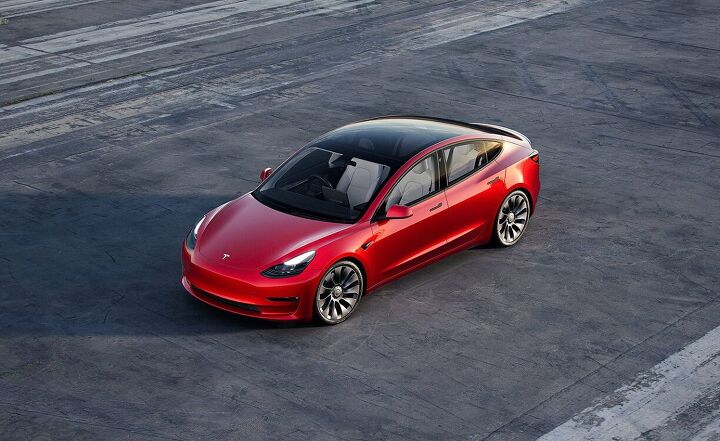Powered By Politics, Tesla Owners Can't Sell Their Cars Fast Enough

A growing number of Tesla owners are turning in their vehicles at dealerships, with data showing a record spike in trade-ins amid the ongoing backlash against CEO Elon Musk’s role in the Trump administration.
Key Points
- Data shows Tesla vehicles made up 1.4% of all trade-ins in early March, the highest on record, up from 0.4% a year ago
- Owners are trading in Teslas amid protests over Musk's leadership role in the Trump administration’s Department of Government Efficiency.
- Tesla shopper interest has dropped to 1.8%, while February sales likely fell 10%. Used Tesla prices continue to decline as more vehicles re-enter the market.
According to Reuters, Teslas from model year 2017 or newer made up 1.4 percent of all vehicle trade-ins through March 15. That’s up a full percentage point compared to the same period last year. If the trend holds, March could become a record-setting month for Tesla trade-ins toward new or used purchases a dealerships of competing brands—this figure excludes trade-ins toward new Teslas or other direct-to-consumer EV brands.
The increase follows a rise in protests against Musk, who is now leading the Department of Government Efficiency under President Donald Trump. Demonstrations across the U.S., dubbed “Tesla Takedown” events, have targeted Musk’s involvement in federal workforce cuts and canceled humanitarian efforts. Trump himself has labeled these events as domestic terrorism as he pledged to purchase a Tesla for his White House staff.
Social media platforms have seen an uptick in posts from Tesla owners publicly denouncing the company and trading in their vehicles in protest. Some Tesla models have reportedly been vandalized or even set on fire, while damage to Tesla showrooms and Supercharger stations has also been reported. The rise in vandalism threatens to make Tesla vehicles uninsurable and could negatively affect resale value as well.
Used Tesla prices—which were already in decline—are expected to free fall as a tidal wave of trade-in vehicles flood the market. Consideration for new Teslas among shoppers also fell to 1.8 percent last month—the lowest since October 2022—down from a recent high of 3.3 percent in November.
Estimates from Cox Automotive suggest Tesla sales dropped 10 percent in February, with weaker demand for the Model 3, Model Y, and Cybertruck contributing to the decline.
As disillusionment with Tesla grows, other automakers—both legacy brands and EV startups— may find an opening to attract defecting Tesla drivers. Polestar, for example, is offering a conquest bonus to former Tesla owners which could see them save up to $20,000 on the cost of a new vehicle from the Swedish brand.
Become an AutoGuide insider. Get the latest from the automotive world first by subscribing to our newsletter here.

An experienced automotive storyteller and accomplished photographer known for engaging and insightful content. Michael also brings a wealth of technical knowledge—he was part of the Ford GT program at Multimatic, oversaw a fleet of Audi TCR race cars, ziptied Lamborghini Super Trofeo cars back together, been over the wall during the Rolex 24, and worked in the intense world of IndyCar.
More by Michael Accardi



































Comments
Join the conversation
And this is why corporations should not get political. Why deliberately piss off potential customers?
@Rus - If the extremist Democrats really wanted to "save the planet" they would have never supported EVs in the first place. Above all, EVs have shorter lives than ICE and all of the resources/energy that went into building the EV end up in the salvage yard way before ICE vehicles. I'm not against EVs, they have a niche as small urban vehicles; not as 100% replacements for ICE.